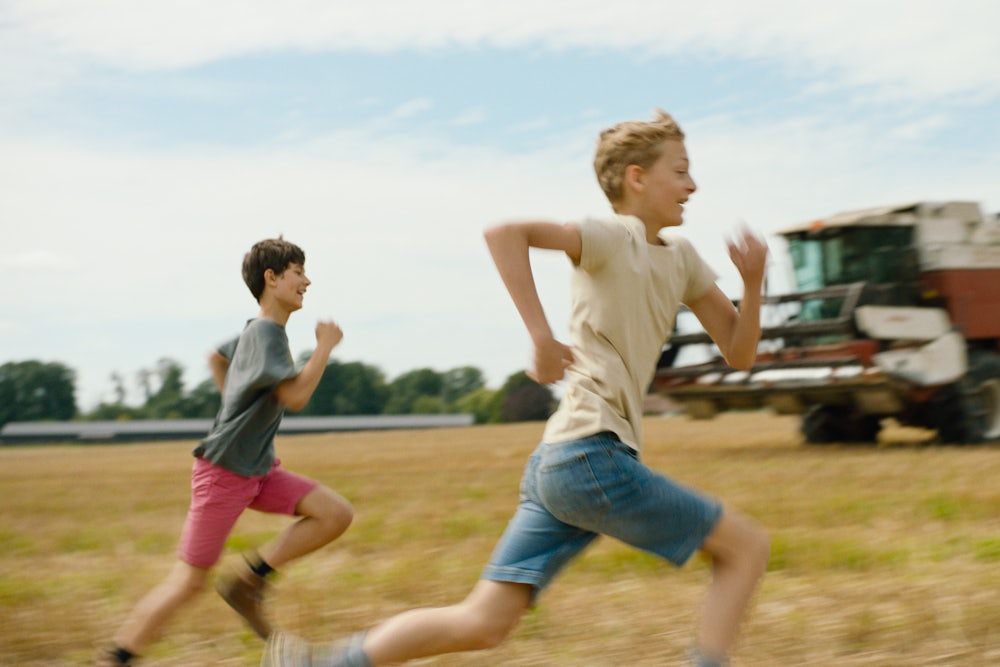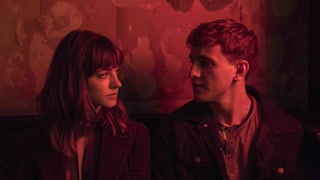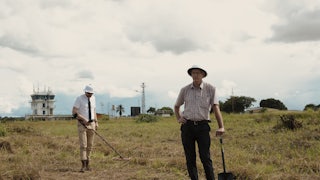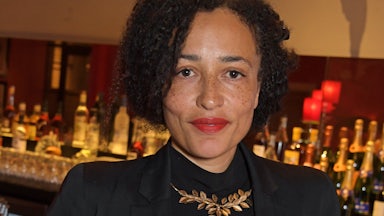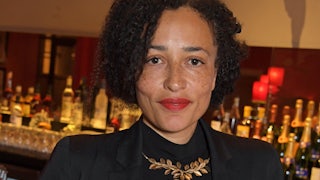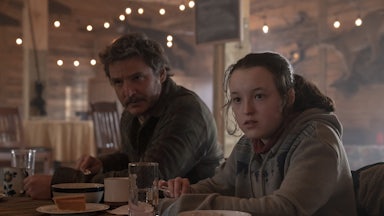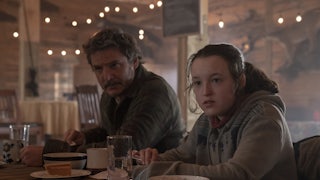About two decades ago, when I briefly co-wrote the New Yorker film column with Anthony Lane, “indie” movies were all the rage. Although many of them were too earnest or chaotic or insufficiently realized, they suggested that there was life after the 1970s triumphs of Scorsese, Coppola, Bogdanovich, and co, and that the Age of the Blockbuster hadn’t completely succeeded in wiping smaller movies off the map. The powers-that-were at The New Yorker eventually tired of my writing about odd little ventures like Clockwatchers, The Butcher Boy, and The Apostle—films that were usually destined for a two-week stint at Film Forum or the Angelika—and pushed me firmly in the direction of Armageddon, but I have never lost my affection for independent films. Of course, it is just as easy for small films to flail and fall flat as it is for them to shine. (I’m thinking of The Whale, Darren Aronofsky’s cumbrous portrait of a severely obese, ailing, and housebound English teacher and his relationship with his alienated daughter.) But when they work, they bring something to the cinematic landscape that we’re badly in need of: a quality of emotional intensity, of poignant yet unsentimental storytelling.
There are two “indie” films that caught my mesmerized
attention this fall: Aftersun, by first-time Scottish director Charlotte
Wells, and Close, the second film from Belgian director Lukas Dhont. Both
movies are insistently small-scale, aiming for intimate, almost imperceptible
moments rather than the sort of grand affirmation The Whale tries for.
They come bearing no messages other than their own inner dramas, dramas that
elude closure for the higher pleasures of unanswerable questions. As it happens
(although it just as easily might not have), both are up for an Oscar as the
award-giving season looms, creating the anticipatory excitement that Hollywood
still does so well. The immensely talented Paul Mescal, one of whose gifts is
to portray a kinetic complexity of emotion, is featured in the best actor
category for his role in Aftersun as a single father, trying desperately
to keep his young daughter from detecting his sense of despair. Close,
which follows the profound yet fragile friendship between two 13-year-old boys,
won the Grand Prix at Cannes and is a nominee for best international feature film.
Aftersun is a singularly conceived film, one like no other I’ve seen—a meditation on presentness versus memory and the ways in which they intertwine, on one hand, and fail to mesh, on the other. Mescal’s Calum is the 30-year-old father of the lively, 11-year-old Sophie (Frankie Corio), whose mother he is separated from; he has moved to England while Sophie has remained in Scotland with her mother. The two have joined up for a week’s trip to the sort of shabby, budget-priced Turkish resort where no one is at the front desk when they check in and the second bed Calum has booked never materializes.
Casual at one moment and piercing the next, Aftersun’s power builds incrementally, almost to the side of the narrative rather than at the center. At its core lies the arbitrariness of individual perception and the elusive nature of even those we think we are close to. We feel in it the constant presence of the camera—“Life isn’t real unless it’s being photographed,” Calum observes irritably in response to his daughter continually filming him at his most prosaic, as though she were making a documentary of their visit. The film, set in the 1990s, intermittently cuts to an older Sophie (Celia Rowlson-Hall) as she watches these videos and looks at Polaroids, trying to make sense of a story she only dimly understood as it happened—especially of the mercurial man who was her father, both there and not there, laddish one minute and sitting naked on a bed, overcome by a bout of prolonged sobbing, the next.
Sophie, an unselfconscious beauty with a sprinkling of freckles, is just beginning to realize her erotic potential despite proclaiming that “boys are disgusting.” She is torn between spending time with her father—playing Trouble or happily reading a magazine called Girl Talk on a deck chair next to him and delighting in the fact that “we’re both under the same sun”—and joining in the high jinks of a slightly older group of girls who are already in the world of adulthood, making out with their boyfriends in the swimming pool and asking one another, “Did he come?”
Sophie watches these girls closely, looking for clues to whom she will become, all the while keeping an eye out on her father, who calls her “poppet” when he is feeling affectionate but can also be acutely embarrassed by her impulse to perform—to render, for example, a gratingly off-key karaoke version of “Losing My Religion” in front of the hotel audience or to corral a group of fellow guests who are on a day trip to an amphitheater into singing “For He’s a Jolly Good Fellow” in honor of his birthday.
Part of the power of the movie lies in the fact that it provides glimpses of Calum’s troubled background—“When I was 11,” he tells Sophie in response to her asking what he thought he’d be doing now when he was her age, “no one remembered it was my birthday”—without settling for obvious connections between his past life and his present, disconsolate one. “I can’t see myself at 40, to be honest,” he tells a young man who works on a boat. “I’m surprised I made it to 30.” Calum has brought a pile of self-help books on the trip on the order of How to Meditate and sometimes goes out on the balcony and does a balletic series of tai chi moves to the music in his head. All the while Sophie is recording him, up to the moment he wishes her goodbye at the airport, as though she has a premonition of a future without him.
Aftersun’s power is also attributable to the naturalistic performances of Mescal and Corio, neither of whom seems to be acting. Mescal’s indelible presence is evident from the moment he appears on screen (he was equally good in the Hulu adaptation of Normal People); there is something about his emotive gift and quiet sexiness that reminds me of Brando, but Brando without the braggadocio. Meanwhile, it is hard to take one’s eyes off Corio, even when she is doing nothing: Her feelings flicker across her face for an instant and then are gone, suggesting, for example, that she is capable of disdaining as well as adoring her father. “Stop doing that,” she tells him curtly. “Doing what?” he asks. “Offering to pay for something,” she shoots back, “when I know you don’t have the money.” The moody music, featuring pop-rock songs from the ’90s by bands such as REM, Steps, and Blur, and skillful use of ambient noise—children chattering in the background—help to establish the film’s shifting tone, as does the imagery—sometimes vivid and bright and sometimes bleached and grainy, like scrappy cam footage.
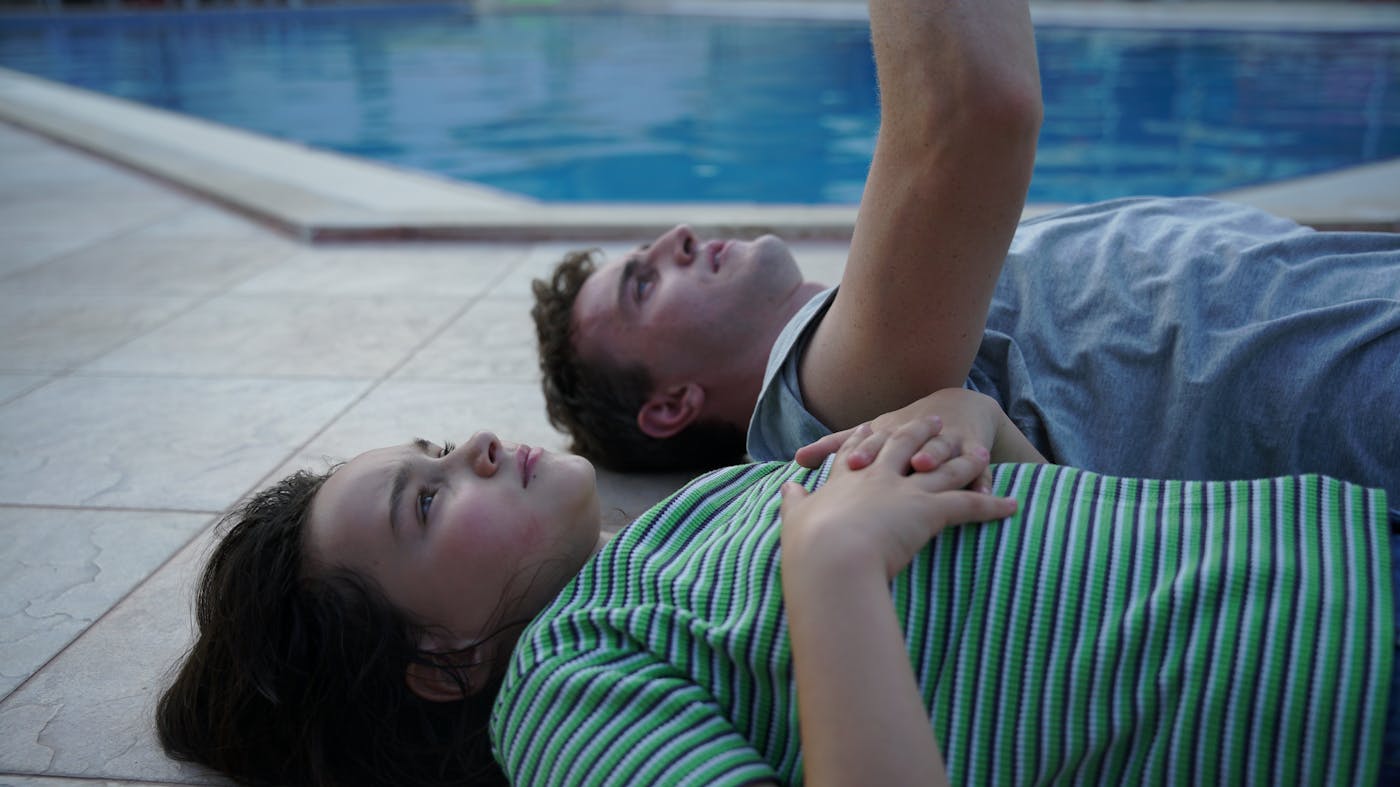
Aftersun can be said in a certain way to be about the making of the film itself, but not in an irritating “meta” sense. It portrays an endlessly refracted reality, filtered through the haze of memory, in which we look at Calum in a mirror looking at a video camera; he meanwhile connects with his daughter mainly through filtered or mediated images, such as the surface of the resort’s pool. It is as though reality were composed of platonic shadows of things rather than the things or people in themselves. The film, which hovers around the presentiment of loss—conveyed through an undercurrent of melancholy that colors the ritualistic diversions of a vacation in the sun—is as heartbreaking as it is unforgettable.
Lukas Dhont’s second film, Close, set in a small Belgian town, is a sumptuously shot meditation on a close friendship between two adolescent boys and its gradual, ultimately tragic erosion under the pressures of the constricting, homophobic culture of masculinity. We first meet Leo (Eden Dambrine) and Remi (Gustav De Waele) as they race on bikes through a field of flowers on a large flower farm that Leo’s parents own. The screen is full of color and joy as if to mirror the boys’ exuberance at being alive and together. They take an unrestrained pleasure in one another’s company, playing games of escaping an unseen enemy who is after them or sleeping in the same bed, where Leo tells Remi long stories to help him fall asleep.
When the boys begin school in the fall, entering a new grade together, their idyllic bond starts to unravel. We watch as they stand in the courtyard, looking lost among the swirl of students around them, girded by their friendship. Their evident intimacy is remarked upon derisively by one of the other boys, who suggests that they are gay. Remi seems indifferent to the aspersions cast on their friendship, but Leo begins to pull away, aware that in being overtly involved with Remi he is trespassing on some inviolable convention of boyish behavior. He gets absorbed in all-male games, like stick ball and ice hockey, while Remi looks on from behind a glass wall. Leo no longer waits for his friend to bike home from school together—“You always wait for me,” Remi says plaintively—and when Leo stays over, he deliberately moves out of the bed the two usually share. When Remi tries to join him, Leo tells him to go back to his own bed, and eventually they stop having sleepovers altogether.
The anguish Remi feels at being forced out of a deeply intimate and once indissoluble connection is exquisitely portrayed: He starts crying and wordlessly kicking at Leo one day in the school courtyard until the two have to be prised apart by a teacher. At home he sits at the dinner table not eating, insisting that his stomach hurts. When their class goes on a day trip to the beach, Remi doesn’t show up. Later the class learns that he has taken his own life. In the aftermath of his friend’s inconceivable act of despair—“He’s no longer here,” Leo’s mother gently explains to him—Leo tussles with feelings of guilt and grief. He sleeplessly goes over the details (“Do you think he suffered?” “Do you think he left something?”) with his older brother Charlie, the better to grasp what has happened. Charlie tries to make up for the loss of Remi, listening sympathetically and giving Leo rides to school on his bike.
At the film’s end, Leo reaches out to Remi’s mother and asks if he may go into his friend’s room, as if to imbibe his presence through the artifacts he has left behind. “If you want something, help yourself,” she says and then asks, tenderly, almost as an afterthought, “What happened between you two?”
In an undidactic and subtle way, Close is a daring and revelatory film about the price boys pay as they gradually take on the costume of a societally endorsed masculinity, where the impulse toward male closeness is perceived as feminine and weak. In less assured hands, the film might have morphed into a simpler, more overtly homoerotic account of a male romance gone awry, but Dhont has kept his focus wider, allowing the viewer to see the larger implications of our culture’s rigid categorization of what is or isn’t appropriately masculine or feminine behavior. He is helped by the two astonishingly gifted actors who bring the different personalities of Remi and Leo to life, by an unvarnished and deliberately spare script, a picturesque locale (the flower fields, which are razed at the end of the film, are a lyrical metaphor for the destruction of the boys’ friendship), and a directorial vision that takes us beyond clichéd and moralistic interpretations and offers us instead an Edenic glimpse of life untouched by conventional expectations of what it is to be a boy.
What both these films offer is a subtlety—a nuanced exposition of storylines that might have easily been too simplified—that one doesn’t often find in larger films, particularly American ones. Aftersun and Close focus on the muffled vulnerability of their characters and the hurdles that present themselves in the face of intimate connection; in doing so they not only invoke a common theme but represent an increasingly rare cinematic foray into the sort of complex and intentionally ambiguous material that may not play well at the box office but lingers with the viewer well after the screen has gone dark.
